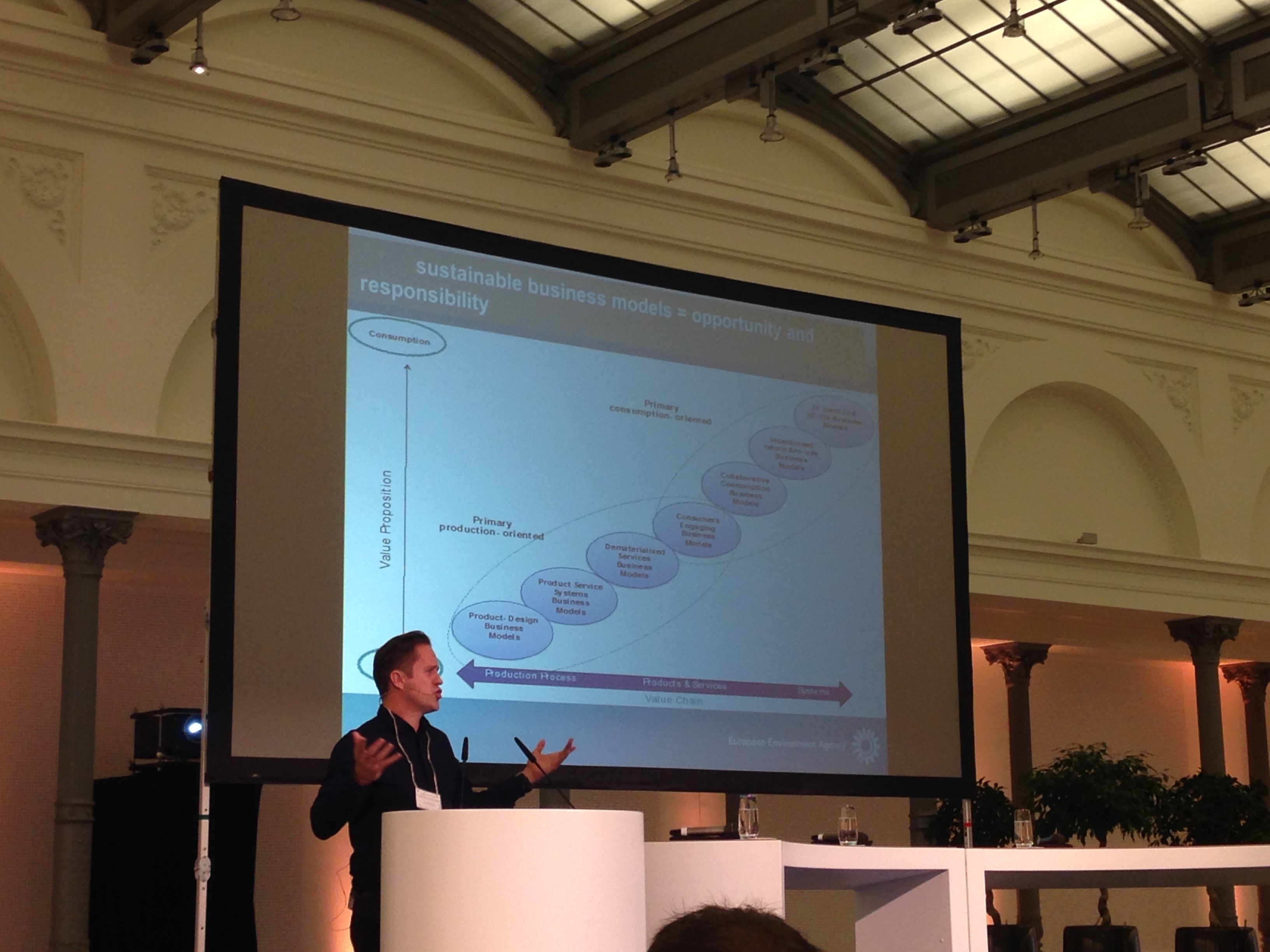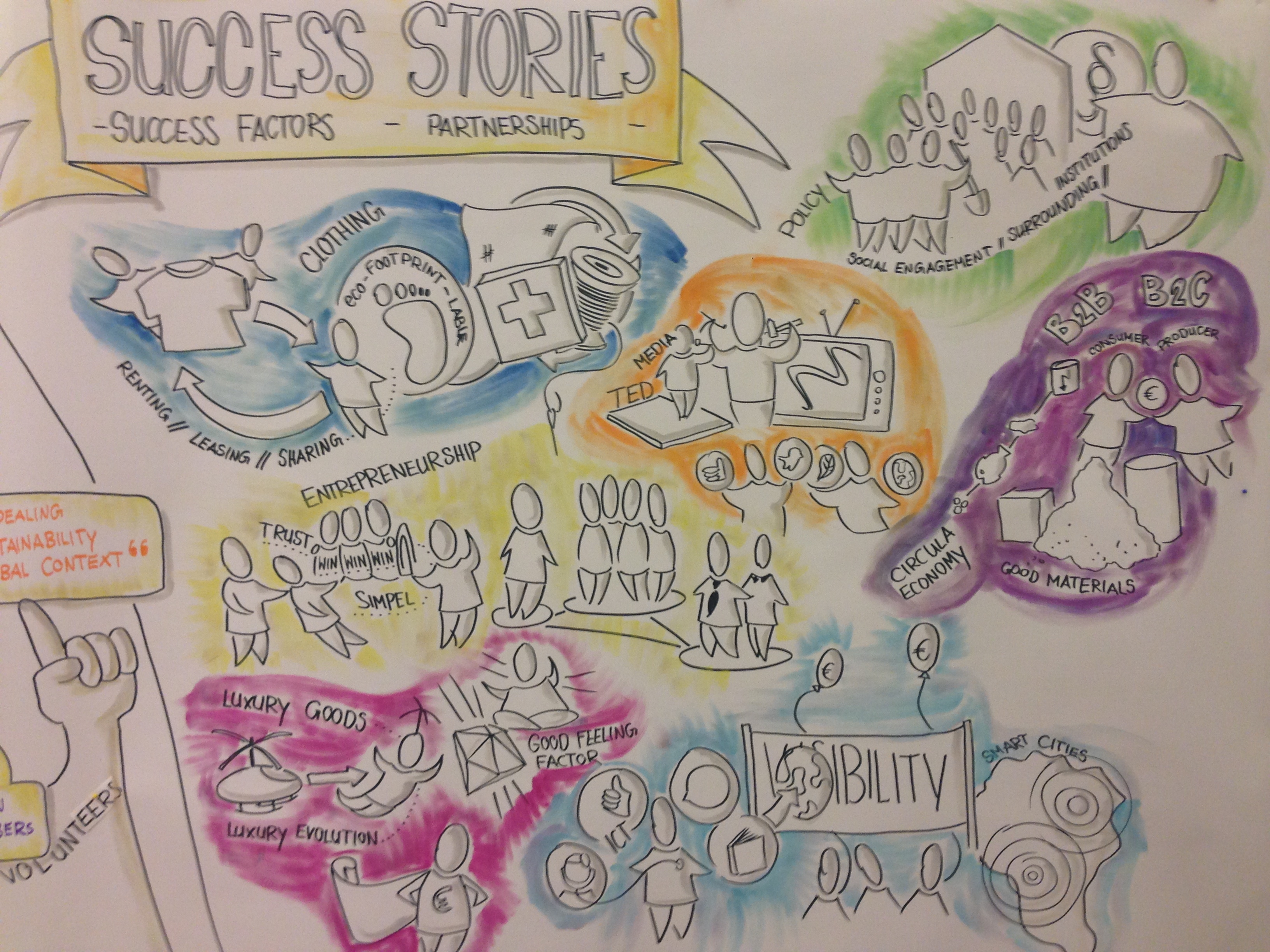

Abonnez-vous aux SCP News
Call from talk to action for scaling-up innovations enabling sustainable living

In the opening, Almut Reichel from EEA, mentioned that even though technical progress lead to increases in resource efficiency, in aggregate environmental impacts of consumption in Europe keep increasing signalling the need for sophisticated policy packages.
On the first day of the work-studio, the participants worked on developing visions for sustainable living in 2050 and identifying examples of existing initiatives and promising practices towards living sustainably in Europe that could be applied elsewhere. The interesting approach allowed the participants to put themselves in the feet of future consumers in 2050 and elaborate on what would need to be done today in terms of social and technical innovations, policy, infrastructure and supply chains to serve those consumers of the future. Following the experience, one participant from the Swedish Ministry of Environment stated: “We have so many strategies, tools and approaches but implementation of these is the problem. What is decided at the national level should be implemented at the local level and contradictions between policies should be tackled”.
With these thoughts, the participants were lead to the second day that focused on identifying opportunity areas and success factors for scaling-up innovations and entrepreneurship to achieve sustainable living. In the opening, Lars Mortensen from EEA talked about the study the ETC on SCP did on various possible business models that can encourage sustainable living. Stephanie Schmidt from Ashoka emphasized the need to create hybrid value chains, legal structures and access to finance for social businesses to flourish. She said, as of today communication of social innovation experiments via stories is key for dissemination and take-up by wider public. Luis Neves from Deutsche Telekom called for action and emphasized the need to engage business in an agenda that is solutions driven. At table discussions, participants worked on devising actions around entrepreneurship, policies, clothing/textiles, luxury goods, ICT sector and media.



This work-studio was part of the activities on innovative sustainable business models run by the EEA and its ETC/SCP and of the projects Budding Ideas Glocally for 2050 (BIG2050) and Business Innovation for Sustainable Scale-up (BISS) funded by the German Ministry for Economic Cooperation and Development (BMZ). The BIG2050 and BISS projects contribute to the Global Network on Sustainable Lifestyles (www.vision2050.net) and the Global Network on Sustainable Innovation and Entrepreneurship (www.scaling-up.net).















